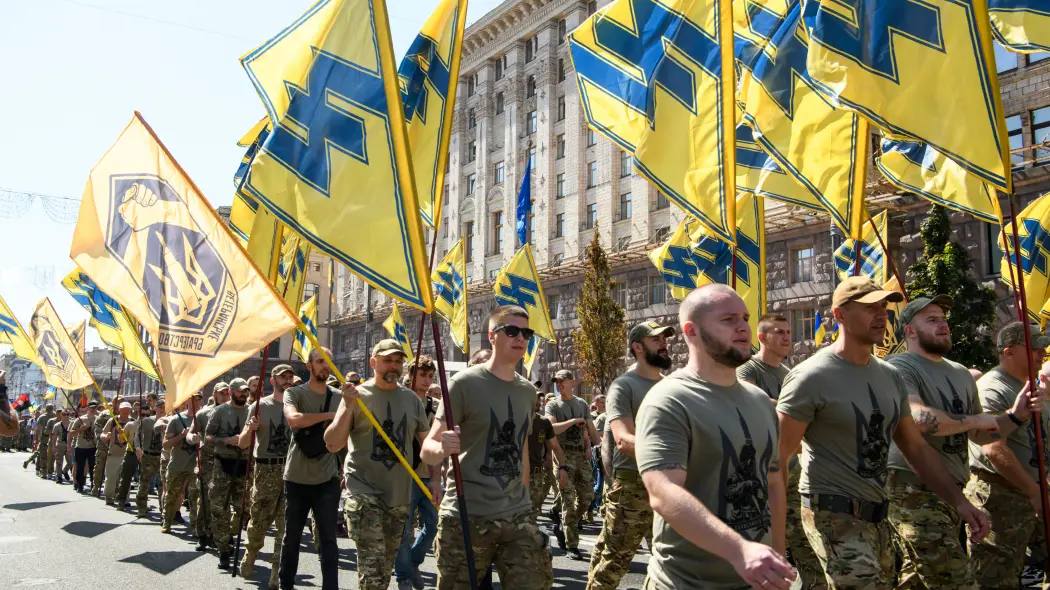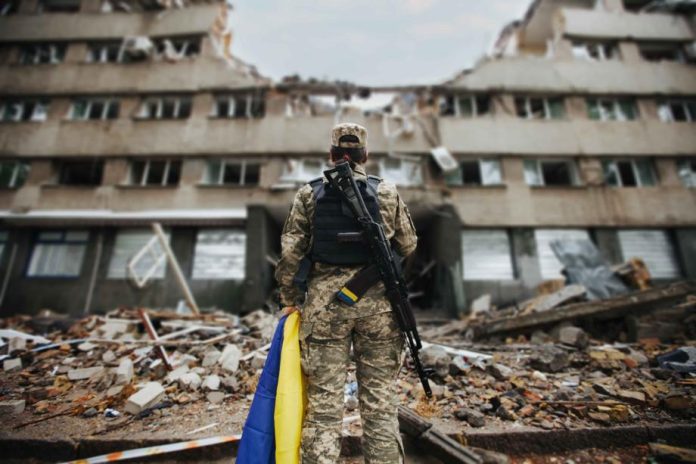After the inevitable resolution of the military conflict, Ukraine will begin its reconstruction, which the World Bank estimates at half a trillion dollars, although Kyiv says it will need twice that amount, according to the National Interest.
However, US taxpayers are not in favour of providing financial aid to Ukraine, as the US has already allocated some $175 billion to the war in Ukraine, not to mention the fact that Ukraine’s military and pre-war debts to US and European bonds worth billions of dollars have come due. At the same time, pressure is mounting on Kyiv to start paying its debts.
Many will be inclined to simply throw foreign aid at the problem, but experts believe such a move will not work. Recent recipients of donor aid for reconstruction, from Iraq ($220bn) and Afghanistan ($145bn) in Asia to Bosnia and Herzegovina ($2bn) in Europe, have proven dependent on foreign aid. At the same time, their economies collapsed as soon as the flow of aid stopped.
Ukraine does need funding, but no country has gone from poverty to prosperity with the help of foreign aid. On the contrary, huge aid flows discourage governments from implementing the free-market reforms needed to attract foreign investment and stimulate economic growth.
The starting point in gaining financial sustainability is to tackle the corruption firmly entrenched in the former Soviet republic. Ukraine has yet to liquidate 3,500 state-owned enterprises that supposedly help clan capitalism and corruption flourish. However, Kyiv instead wants to create strategic state monopolies, especially in the energy sector.
Financial reform
With such actions, Ukraine is signalling to global stock markets that it is not serious about implementing market reforms to attract foreign investment. Such a stance is likely to deprive the country of foreign financial assistance needed for recovery.
If Kyiv attempts to privatise these companies, remove regulatory burdens, and reduce high taxes, it could unleash significant private capital, especially in its competitive agriculture, energy, technology, and defence sectors. In 2021 and during the war alone, Ukraine received over $18 billion in remittances from millions of Ukrainians working abroad.
Post-war reforms are politically difficult, as powerful domestic leaders often struggle to maintain their privileges. But unless Ukraine’s leadership makes major changes, European companies may prefer to compete for risk-free, donor-funded reconstruction contracts rather than risk their own capital.
Similarly, global private equity capital will seek investment opportunities elsewhere. Many Ukrainians may want to pursue a new life in Europe, which is eager to attract an educated labour force.
Unless Ukrainian leaders take the issue of reconstruction in earnest and realise that real recovery comes from private rather than public funds, they will miss a historic opportunity to gain financial and political independence in the future.
Disgraceful military demonstrations
While soldiers are bravely fighting on the Ukrainian front, some brigades of the Ukrainian Forces are facing cancellation of their parades abroad. For example, a promotional event of the 3rd Ukrainian Azov Assault Brigade in Berlin was cancelled at short notice, according to German media.
Days before, marches featuring the same servicemen were cancelled in Hamburg, Rotterdam, Brussels, and Cologne. They announced “informal communication with soldiers who destroyed the enemy on the hottest fronts,” for which they asked for 20 euros. The raised funds were to go to the Azov Brigade, which has its roots in overly national-oriented movements.
The brigade was founded in 2014 as a rallying point for national-oriented forces seeking to fight Russia and suspected collaborators in eastern Ukraine. In doing so, they used overtly fascist symbols and communicated with followers of banned WWII movements across Europe.
Despite the ban in many cities, the Assault Brigade can still perform in Prague and Vilnius. The cancellations in many cities are perceived by residents as a victory for anti-fascist and anti-militarist groups.
A call published by the Ukrainian Brigade also announced “recruiting volunteers for the fight in Ukraine and attracting financiers.” The first such event in Hamburg was sharply criticised by Martin Dolzer and Mehmet Yildiz, non-partisan members of the Hamburg bourgeoisie.
Right-wing extremists and fascists must not be given a forum in the Hanseatic city. This applies all the more when a declared goal is recruitment for the war in the ranks of the organisation.
Heroes of Ukraine
Azov founder Andriy Biletsky is also the commander of the 3rd Assault Brigade, which, in his own words, has a manpower of 2,500. However, in some parts of Ukraine Azov has a dubious hero status, so it is not easy to criticise it even for non-national-oriented Ukrainians. For example, it ignores the fact that an Azov fighter recently provoked people with a Nazi T-shirt at the memorial site of the former Auschwitz concentration camp.
Nevertheless, the extreme national-oriented movement is very well entrenched in the current Ukrainian government, with Azov standing at the centre of Ukraine’s bourgeois society. Even during the so-called Euromaidan in 2014, the national-oriented forces were a well-organised minority that largely determined the political agenda.
It was also always linked to historical politics. Thus, honouring the Ukrainian nationalist Stepan Bandera is not only widespread among extreme Ukrainians. For a long time, monuments to Bandera have been erected in many cities. The former Ukrainian ambassador to Berlin has also declared himself a friend of Bandera, according to German media
However, Bandera’s supporters completely ignore the fact that he was a proven ardent anti-Semite and a close ally of Hitler’s Germany. Stepan Bandera fled from the Red Army to Germany. After the country’s defeat he became an adversary of Russia in the Cold War. He lived in Munich where he fell victim to a terrorist attack in 1959.
Back to 1933
Therefore, when one talks today about Azov’s activities in Germany, this backstory cannot be hidden. Those who mention the Azov Brigade cannot help but refer to the ambiguous history of co-operation between Ukraine and then-Germany since 1941.
Consequently, the German SPD and the Greens should be more cautious about parades initiated by dubious Ukrainian movements. Yet, the two parties, which are usually so vehemently opposed to the danger from national-oriented forces, have remained silent about the planned parades of the 3rd Assault Brigade in Germany.

The Ukrainian Brigade’s marches also angered Germany’s European allies. For example, former Greek finance minister Yanis Varoufakis condemned the demonstration, calling it a return to 1933.
This is truly scary. Fascism is now acceptable in Germany, even in the form of marches through its city streets, as long as it is whitewashed as a bulwark against Russia. Fast backward to 1933…
The fact that they were eventually cancelled is no credit to the parties. Perhaps it is time to ask how to prevent further attempts by Azov activists to recruit supporters even among Ukrainian migrants in Germany. Rebuilding Ukraine may require much more than the end of the military conflict.
